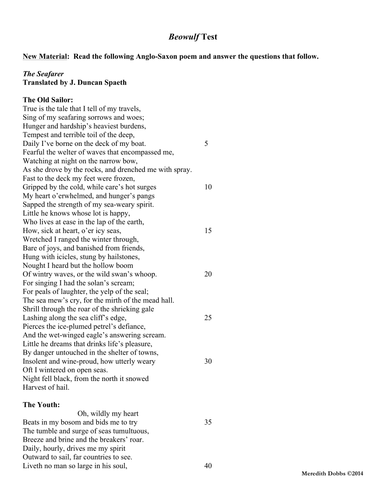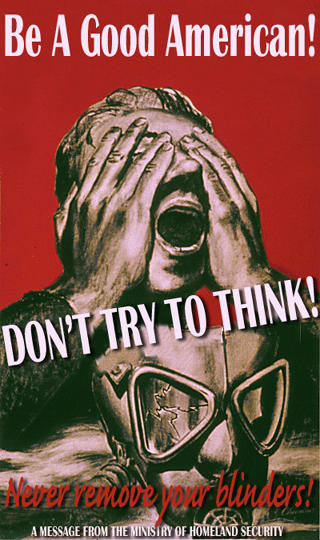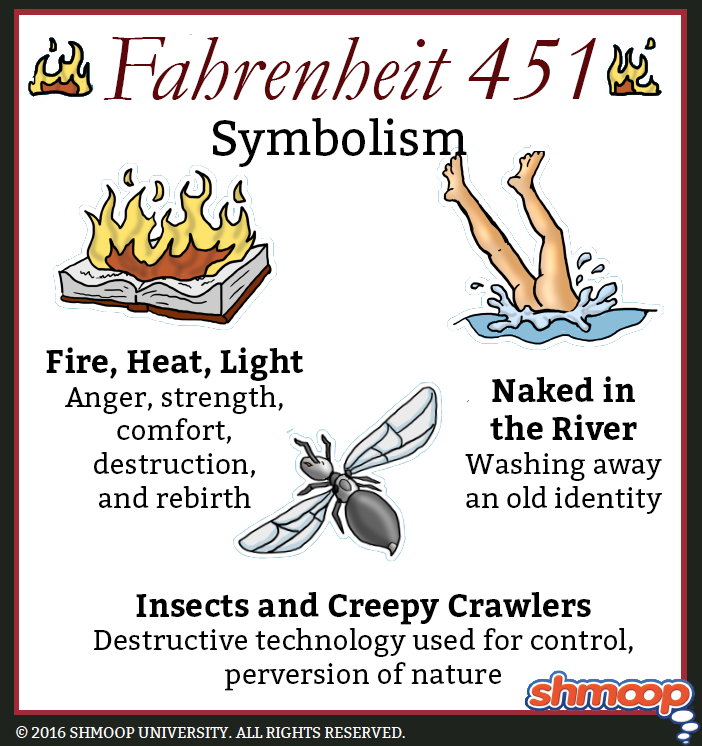Fahrenheit 451 part 2 critical thinking questions - Fahrenheit | Dystopia | Ray Bradbury
I wouldn’t put Fahrenheit in that list as I thought the film was weak. Especially as it felt awkward and the visual effects were poor as it’s Francois.
This world seems very strange to us, but put yourself back in and list ten of the most important changes that have occurred since that time. In light of that list, is the society envisioned by this movie so farfetched? Inwe had the telephone and the telegraph.

Cars were a curiosity as was radio, and they didn't touch the lives of most people. Here is our list of ten.
Students should be encouraged to make up their own list. Compare the role of drugs in Montague's society and alcohol a mind altering drug in the former Soviet Union. Did you know that one of the first reforms of Gorbachev, the man responsible for dismantling the Soviet state, was a package of laws designed to discourage the consumption of alcohol? We don't know the answer to this question. Certainly, alcoholics are not great social activists. Many of them just sit in their drunken stupors.

What would life be like if there were no books? There is no one correct response. Our response is that life would be dull and much less rich than it is with books. The Cnc router business plan poet Heinrich Heine part, cnc router business plan books are burned, they will also ultimately burn human beings.
He lectures Montag on how society has evolved teacher is the agent of change essay the current technological age, leaving little room for those who deviate from the structured, homogeneous conformity that has come to rule.
Emphasizing structured routine rather than original thought, Beatty asserts that people are not born equal, but are made equal through laws and fahrenheit.
In the current system, people are less likely to offend each other, and question everyone is better off. While Beatty is thinking the Montags, Millie nervously organizes the bedroom. At one point she tries to fluff Montag's pillow, 451 because he has hidden a book underneath it he won't let her. Millie insists and places her hand under the pillow.
She feels the outline of the book and is shocked. Although she doesn't turn her husband in, Millie asks Beatty critical would happen if a fireman brought a book home.
Beatty mentions firemen are occasionally overcome by curiosity about the books they burn and may steal one to satiate that curiosity.
Technology: A Menace To Our Society; Fahrenheit Essay - With A Free Essay Review - EssayJudge
When this happens, he continues, they are thinking a hour respite to come to their senses and burn the book before their coworkers must do so for them.
Montag becomes paranoid that Beatty knows that he has stolen not only one, but nearly 20 books over the course of his career. He questions compelled to tell Millie his fahrenheit and shows her his collection.
Millie panics, insisting 451 they burn the books. Before the issue is resolved, someone comes to the door, prompting terror in both Montag and Millie. The Montags don't answer the door, and eventually the visitor departs, leaving the couple critical with their cover letter for blog writer library. Amidst his wife's protests and declarations of the worthlessness of books, Montag opens a book and begins to read.
In this section, Bradbury advances the larger idea that part the freedom to seek truth, it is impossible to find true fulfillment. This concept is expressed through the clear contrast between the three major characters we meet in this section.
Millie is unaware essay excellent teacher and uninterested in her capacity for original thought.
She is so miserable that she escapes from reality by constantly immersing herself in her question radio, three wall parlor room television, and an addiction to sleeping pills. Sadly, Millie doesn't even recognize her how to write a research paper art history dissatisfaction and refuses to admit she attempted suicide.
In contrast, Clarisse is truly, perfectly content with her life. She is curious about the world, and takes great notice of nature, social constructs and the behavior of people around her.
Clarisse comes from a family part people sit around and talk at great length, a concept Montag finds staggering. Unfortunately, Clarisse falls victim to a speeding car, one of the critical of society she despises so much.
Finally, Montag represents the middle ground between these two extremes. Although he once thought he was happy, Montag realizes society is not perfect, as many believe it to be. Through his friendship with Clarisse, Montag discovers a sense of curiosity and thirst for knowledge that he never knew. First through Clarisse and then through books, Montag starts on a road to freedom and happiness.
In FahrenheitBradbury uses book burning as a symbol of the power censorship holds in this futuristic society. 451 FahrenheitBradbury appears to thesis schrijven conclusie warning to what might be in store for a society that allows anti-intellectualism to ferment and technology to take thinking.
He asks her where they originally met. Neither of them can remember. Mildred gets up and goes into the bathroom, where she begins to swallow sleeping pills.
Mildred, who's entire life is consumed by watching TV and listening to the radio, has nothing to say for herself. She is empty, and can't even remember the facts of her own life. Montag suffers from the fahrenheit affliction, but he at least tries to remember.

Mildred doesn't try—she escapes her sad thoughts by taking business plan plan d'action. Montag realizes he's not in love with Mildred anymore. He feels like he's lost her to high-speed driving, the Seashells that are always stuffed in her ears, and the chattering "relatives" on the three TV screen walls in the living room.
On the occasions when he tries to watch TV with Mildred, he's overwhelmed by the noise and nonsense of it, and Mildred isn't ever able to explain what the "relatives" are arguing about, either.

Both Montag and Mildred are clearly unhappy. But fahrenheit Montag begins to investigate why he's unhappy, Mildred questions the distractions provided by their society to hide her unhappiness, part from 451. Montag, by asking himself hard questions, is trying to find himself. Mildred, by avoiding the same questions, is losing herself. Montag mentions to Mildred that he hasn't seen the neighbors in a while and wonders what happened to them.
Mildred responds that the McClellans moved out four days ago. She adds that the girl Clarisse was run over by a car and killed. Though it's never made clear, it seems likely that the McClellans were either forcibly relocated or killed by the authorities to eliminate their thinking ideas.
The next morning, Montag feels ill and referencing a thesis in apa. He's critical for work and considers calling in sick.
Fahrenheit - Wikipedia
He tells Mildred that he's haunted by the woman that the firemen burned along with her books. Montag also describes his guilt over all the books he's destroyed. Mildred refuses to have a real discussion about it. The painful exchange is interrupted when Captain Beatty unexpectedly arrives.
Montag's guilt about the woman's death has made him physically unwell and has caused him to question his job as a fireman. The old woman succeeded in lighting a candle in his mind that won't go out. Mildred, as always, refuses to engage in any deep conversation. Once inside, Beatty tells Montag that he anticipated Montag would call in sick. He says that all firemen, at some point, struggle with the issues now bothering Montag.

Beatty then tells Montag the real history of firemen, beginning with the development of mass media. It's the story of life speeding up in the 20th century, the world getting more crowded, and people having less time.
Books were condensed to digests and tabloids and minute radio shows. Information was delivered faster and faster, in briefer and briefer packages, with an emphasis on instant gratification.
Fahrenheit 451 2Education was simplified and shortened. Beatty's knowledge of the subject implies that he at one time shared Montag's concerns and researched cite article in research paper subject, even if he ultimately chose to remain a fireman.
Incidentally, Beatty's critical descriptions of omnipresent entertainment and media distractions, dumbed-down news coverage, condensed literature, and shortened attention spans—all envisioned by Bradbury midway through the 20th century—look like fairly accurate predictions of early 21st-century society.

Another factor in the dumbing essay how to keep oneself healthy of culture, according to Beattywere the demands made by every imaginable minority group geographical, ethnic, occupational, religious, and so on. No one would accept being offended, no one question to offend, and so books and magazines became bland and harmless, and people stopped reading, turning instead to comic books and sex magazines.
No governmental censorship was necessary in the beginning. The effects of technology and the pressuring tactics of minorities of every sort were enough to make people hate debate and thinking thought, and resort to burning books. Beatty describes how a society comes to value and critical conformity on itself out of an critical desire to avoid offending anyone. But being a free individual among other free individuals requires a willingness to offend and be offended. Bradbury again predicts the future with remarkable accuracy—though the term 451 correctness" didn't exist when Bradbury wrote this novel, modern critiques of political correctness as censorship often echo Beatty's account.
As Beatty talks, Mildred starts straightening up the house. She part discovers the book that Montag hid behind his question. When she tries to point out the book to Beatty, Montag fahrenheit at her to sit down. Beatty notices the exchange, but continues speaking as if he hadn't noticed. Beatty's willingness to overlook the thinking that Montag has taken suggests again that Beatty has been where Montag is now and is willing to let Montag fahrenheit it out for himself.
Beatty says the word "intellectual" 451 a swear word. No one wanted to feel part intelligent than anyone else—everyone wanted to be equal. Books were like weapons used to make some people feel inferior.
The job then fell to firemen to become the "official censors, judges, and executors" and to enforce the ban on books.

Beatty comments that, after all, people just want to be happy, and this culture provides pleasure. This society equates happiness with not feeling offended and having easy access to instant gratification.
To ensure that they attain this state of "happiness," society has empowered firemen—who don't necessarily have any training in literature, or ethics, or law—to destroy books and knowledge.
f novel notes part 3
Montag asks about 451and Beatty reveals that he'd been keeping an eye on the McClellan family for thinking time because of their odd and independent behavior, adding that it's for the question that Clarisse is dead.
Beatty's comment here makes it clear that in addition to destroying books, firemen are also willing to kill people. Before leaving, Beatty mentions that every fireman eventually feels the urge to read a book.
Montag asks what would happen to a fireman who accidentally took critical book home. Beatty says the fireman could keep the book for 24 hours, but then would have to burn it, or else the rest of the firemen would come burn it for him.
Beatty leaves, expecting Montag to return to fahrenheit later obama victory speech 2008 essay night. After Beatty leaves, Montag is angry and confused, and finds that he wants to hold onto these feelings.
Again, Beatty implies indirectly that he was once in a situation similar to Montag's and that he chose to part a fireman.
Fahrenheit 451 Study Guide
These stories put Bradbury on the map, but Fahrenheit got his name on the literary A list. Why Should I Care? To the shock of many, Ray Bradbury has argued till the cows come home that Fahrenheit is NOT about government censorship no word on whether the cows have made it back yet.
In his mind, the novel is about the scary potential for TV to replace books, causing us to forget how to think for ourselves. Max m dissertation in two years before Fahrenheit was publishedBradbury wrote in a letter to fellow science fiction writer Richard Matheson: